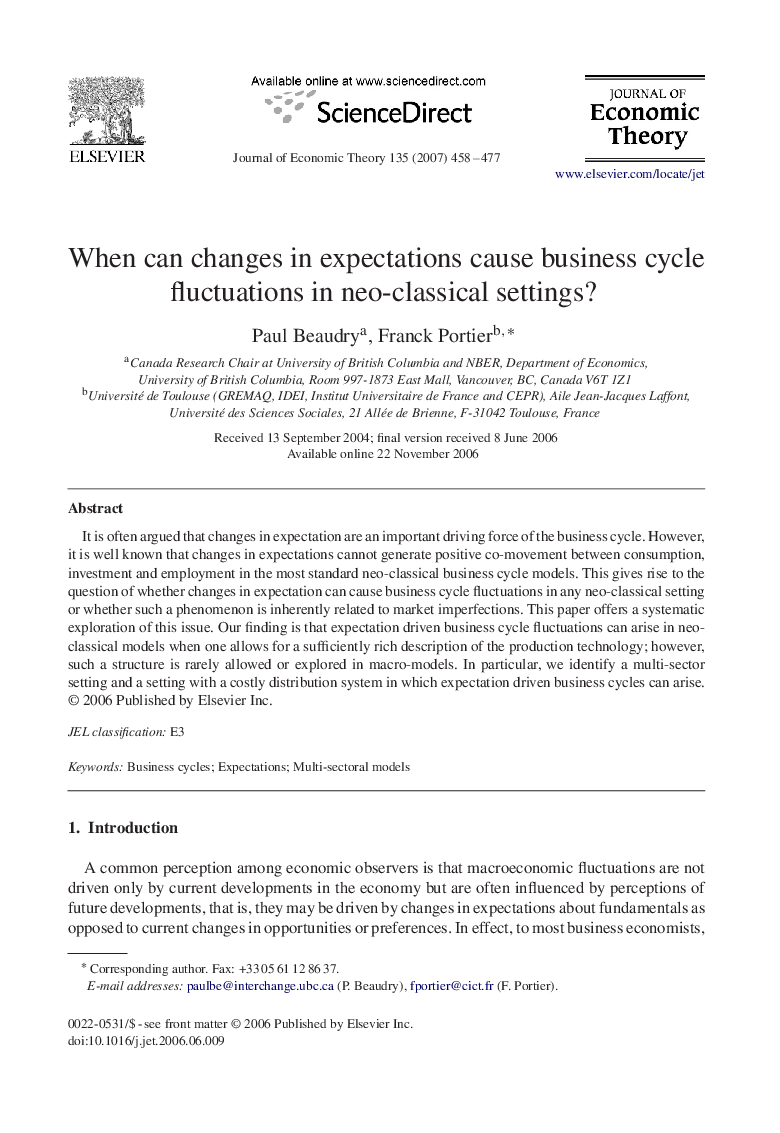| Article ID | Journal | Published Year | Pages | File Type |
|---|---|---|---|---|
| 957716 | Journal of Economic Theory | 2007 | 20 Pages |
It is often argued that changes in expectation are an important driving force of the business cycle. However, it is well known that changes in expectations cannot generate positive co-movement between consumption, investment and employment in the most standard neo-classical business cycle models. This gives rise to the question of whether changes in expectation can cause business cycle fluctuations in any neo-classical setting or whether such a phenomenon is inherently related to market imperfections. This paper offers a systematic exploration of this issue. Our finding is that expectation driven business cycle fluctuations can arise in neo-classical models when one allows for a sufficiently rich description of the production technology; however, such a structure is rarely allowed or explored in macro-models. In particular, we identify a multi-sector setting and a setting with a costly distribution system in which expectation driven business cycles can arise.
